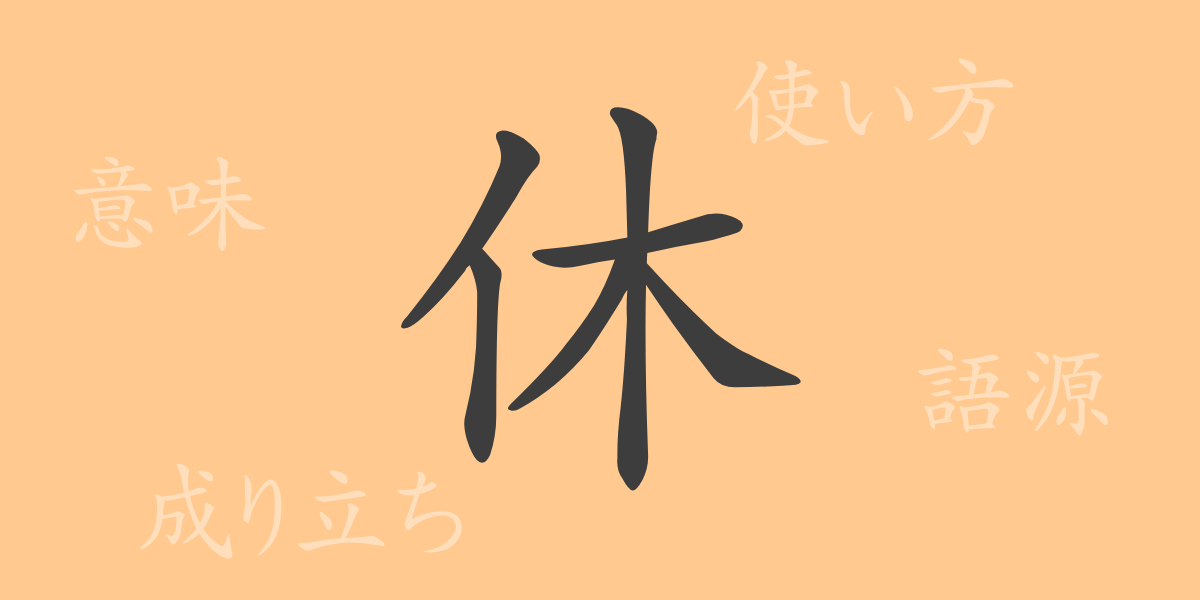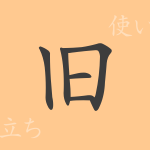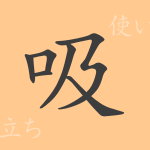The kanji “休” (きゅう, kyuu), frequently used in daily life, expresses moments of rest and temporary pauses. However, this simple character has a deep history and diverse applications. In this article, we will delve into the charm of “休” (きゅう, kyuu), exploring its origins, meanings, uses, and the idioms and proverbs associated with it.
Origin of 休 (語源)
The kanji “休” (きゅう, kyuu) originates from ancient Chinese pictographs. Initially, it depicted a person leaning against a tree, symbolizing rest and relaxation. Over time, its form was simplified to the current “休” (きゅう, kyuu). This character embodies the actions and states necessary for a person to achieve rest.
Meaning and Usage of 休 (きゅう, kyuu)
The fundamental meaning of “休” (きゅう, kyuu) is to temporarily cease activity. It refers to taking a break from daily duties like work or school to relax. It also denotes the state of a machine being stopped or the cessation of an activity. In usage, “休” (きゅう, kyuu) appears in various words like “休む” (やすむ, yasumu, to rest), “休憩” (きゅうけい, kyuukei, break), and “休日” (きゅうじつ, kyuujitsu, holiday), commonly used in everyday communication.
Reading, Stroke Count, and Radical of 休 (きゅう, kyuu)
The kanji “休” (きゅう, kyuu) has distinctive readings and form:
- Reading: The on-yomi (Chinese reading) is “キュウ” (kyuu); the kun-yomi (Japanese reading) includes “やすむ” (yasumu), “やすまる” (yasumaru), and “やすめる” (yasumeru).
- Stroke count: 6 strokes.
- Radical: 亻 (にんべん, ninben, person radical).
Idioms, Proverbs, and Expressions Using 休 (きゅう, kyuu)
The kanji “休” (きゅう, kyuu) appears in many Japanese idioms, proverbs, and expressions. Here are a few examples:
- 休息 (きゅうそく, kyuusoku): Resting to recover from fatigue.
- 休学 (きゅうがく, kyuugaku): Temporarily leaving school.
- 休戦 (きゅうせん, kyuusen): Ceasing combat temporarily, truce.
- 一休み (ひとやすみ, hitoyasumi): A short break.
- 休むに休めぬ (やすむにやすめぬ, yasumu ni yasumenu): Being too busy to rest.
Summary of 休 (きゅう, kyuu)
The kanji “休” (きゅう, kyuu) is deeply rooted in our lives, reminding us of the importance of rest and relaxation. Understanding its evolution from its origins to the present day enhances our appreciation of its rich expression and cultural background. As a common-use kanji, “休” (きゅう, kyuu) helps us articulate the essential moments of rest necessary for maintaining physical and mental health, leading to a fulfilling life.

























